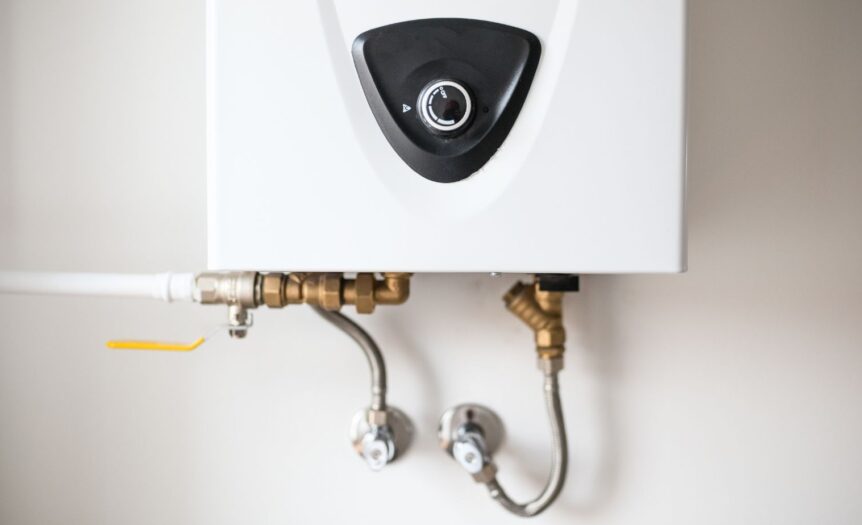When the cold weather sets in, many of us think about packing up our outdoor spaces until the warmer months return. But what if you could continue enjoying your backyard, patio, or terrace even as temperatures drop? With the right heating solution, you can create a comfortable, inviting outdoor environment year-round. Two of the most popular and effective heating options for outdoor spaces are gas-powered (propane) heaters and electric models.
Choosing between propane and electric heating options can be challenging, especially when both types offer distinct advantages. The decision ultimately comes down to a variety of factors, including the size of your outdoor area, your climate, the type of events or gatherings you plan to host, and your budget. Whether you’re looking to warm up a small balcony or a large backyard, both heating solutions have their place.
What Are Gas and Electric Outdoor Heaters?
Both types of heaters are designed to keep your outdoor spaces warm, but they operate differently.
- Gas Heaters use fuel to produce warmth. These heaters rely on propane tanks, which can either be portable or connected to larger systems. They tend to provide more intense and direct warmth, which makes them ideal for colder climates or larger spaces.
- Electric Heaters, on the other hand, use electricity to generate heat, either through infrared technology or other electric heating elements. These heaters are more portable and easy to install, but they require an electrical outlet for operation.
Heat Output and Coverage
The amount of warmth you need depends on the size of your outdoor space and the temperature in your area, and a propane patio heater can provide the high heat output required for larger areas or colder climates.
Gas heaters generally provide a much higher output of heat compared to electric heaters. They are designed to warm larger areas quickly and efficiently. Many gas models can produce over 30,000 BTUs, which is enough to keep even large areas warm. This makes them a great choice for colder regions or larger outdoor settings where intense warmth is necessary.
In contrast, electric heaters typically offer less output, ranging from 1,500 to 5,000 watts. While they may still be suitable for smaller spaces or for use in milder conditions, they may struggle to keep up in larger areas or extremely cold climates.
Convenience and Fuel Considerations
The convenience of the heater largely depends on the type of fuel it requires.
- Gas heaters rely on propane tanks, which need to be replaced or refilled. While portable, this requires you to keep a steady supply of fuel. It may not be ideal for areas where refilling tanks is difficult, or where the cost of fuel is high.
- Electric heaters require no fuel replacement. They operate directly from an electrical outlet, which makes them convenient as long as you have access to power. They’re easy to install and don’t require much maintenance, but you will need to make sure that the heater is within reach of a power source.
Installation and Maintenance
Installation is generally straightforward with electric heaters. You only need to plug them into an electrical outlet, and many models are designed for easy portability. There is little ongoing maintenance required aside from occasional cleaning.
Gas heaters, however, may need more setup. Depending on the model, you might need to connect it to a larger gas supply or install the heater in a fixed location. Once installed, however, gas heaters typically require minimal maintenance aside from refilling the tanks.
Safety Considerations
Safety is an important factor when choosing any type of heating system, and both gas and electric heaters have their own set of considerations.
Gas heaters come with the potential risk of gas leaks, which requires careful maintenance and regular checks of the connections. Additionally, many gas heaters use open flames, which can pose a fire risk if not managed properly. It’s crucial to ensure that the heater is kept away from flammable objects and that it is turned off when not in use.
Electric heaters are generally considered safer since they don’t rely on open flames. However, they still require attention. Ensure that the electrical connections are secure and that proper extension cords (if needed) are used to avoid overheating.
Cost Comparison
When it comes to affordability, both gas and electric heaters offer different advantages.
Gas heaters often have a higher initial cost, but they are more cost-effective for larger areas. However, over time, you’ll need to account for the cost of propane refills, which can add up, especially if the heater is used frequently.

Electric heaters are generally cheaper upfront, and their running costs tend to be lower for smaller spaces. However, in larger areas, they may become less cost-effective as the electricity required to run them increases.
Environmental Impact
For those concerned with sustainability, it’s important to understand the environmental impact of both heating systems.
Gas heaters use fossil fuels, which contribute to carbon emissions. Although they are considered cleaner than some other fossil fuels, they still have an environmental footprint.
Electric heaters, on the other hand, have the potential to be greener, particularly if the electricity used is derived from renewable sources like solar or wind power. However, if the power comes from coal or other non-renewable sources, the environmental impact of electric heaters could be just as significant as that of gas-powered models.
Ideal Uses for Each Heater
Ultimately, the best choice for your space will depend on the size of your area and your specific needs.
- Gas heaters are best for larger areas or locations with colder temperatures. They provide fast and powerful warmth and are ideal for frequent outdoor gatherings, especially in colder climates where maintaining warmth is crucial.
- Electric heaters are better suited for smaller areas or for those who need quick warmth in mild weather. They’re perfect for casual outdoor use and are an excellent choice if you have easy access to a power source and need something simple to set up and maintain.
Quick Summary of Key Differences
Gas Heaters:
- More powerful warmth
- Ideal for large spaces and colder climates
- Requires fuel refills or replacements
- Higher upfront and operating costs
- Potential fire risk due to open flames
Electric Heaters:
- Lower heat output compared to gas units
- Easier to set up and move
- No fuel required, uses electricity
- Lower initial cost and minimal maintenance
- Safer due to no open flames, but still requires proper handling of electrical connections
Conclusion: Which Option Is Good for You?
Choosing between gas and electric outdoor heaters depends largely on your specific needs and environment. Gas heaters are ideal for those with large outdoor spaces or colder climates where intense and long-lasting warmth is needed. They are great for frequent entertaining in the winter. Electric heaters, however, are perfect for smaller, milder settings where easy setup and low maintenance are key.

Consider your space, budget, and local climate when making your decision. With the right heater, you can enjoy your outdoor space all year long, regardless of the weather.



